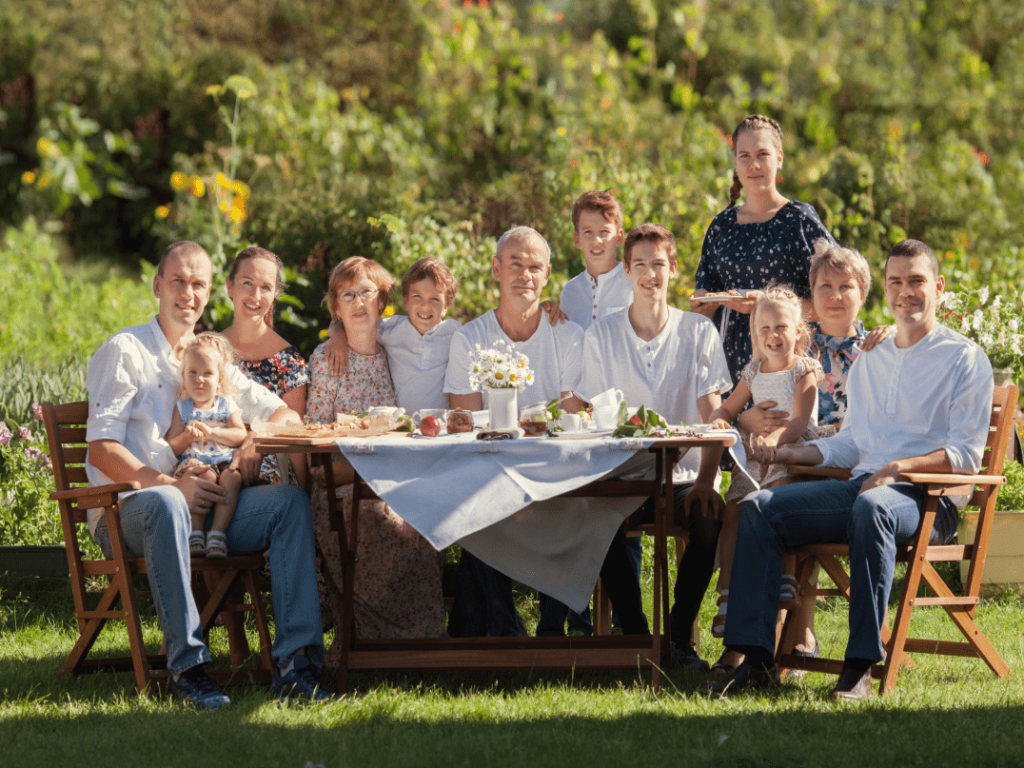Welcome to our detailed guide on family in Arabic! Understanding family names in Arabic is not just about vocabulary; it’s a journey into the heart of Arab culture, where kinship ties are deeply valued and intricately defined. For non-native speakers learning Arabic, grasping these terms unlocks a richer understanding of social dynamics and everyday conversations.
In this article, we will explore the Arabic words for both close and extended family members, ensuring you have a solid foundation for your language learning journey. We’ll also touch upon some cultural nuances associated with these terms.
Family in Arabic: The Core of the Family, الأسرة (al-Usrah)
The Arabic word for family in a close-knit sense is أُسْرَة (pronounced Usrah), often referring to the nuclear family unit. Another common word for family in a broader sense is عَائِلَة (ʿĀʾilah).
Here are the essential members of the immediate family:
- Father in Arabic: أَب (ʾAb) – You might also hear وَالِد (wālid), which is a more formal term for father.
- Mother in Arabic: أُمّ (ʾUmm) – Similar to father, وَالِدَة (wālida) is the formal equivalent for mother. You might also affectionately hear مَامَا (māmā). The arabic word mother, therefore, has primary translations as أُمّ and وَالِدَة.
- Son in Arabic: اِبْن (Ibn)
- Daughter in Arabic: اِبْنَة (Ibnah) or بِنْت (Bint) – Bint is more commonly used in spoken Arabic.
- Brother in Arabic: أَخ (ʾAkh)
- Sister in Arabic: أُخْت (ʾUkht) – The arabic name for sister in law will be covered later in the in-laws section.
Expanding the Circle: Extended Family Members
Beyond the nuclear family, Arabic meticulously defines relationships within the extended family. Here are some key terms:
- Grandfather in Arabic: جَدّ (Jadd)
- Grandmother in Arabic: جَدَّة (Jaddah)
- Paternal Uncle in Arabic: عَمّ (ʿAmm) – This is the brother of your father.
- Paternal Aunt in Arabic: عَمَّة (ʿAmmah) – This is the sister of your father.
- Maternal Uncle in Arabic: خَال (Khāl) – This is the brother of your mother.
- Maternal Aunt in Arabic: خَالَة (Khālah) – This is the sister of your mother.
- Cousin in Arabic: اِبْن عَمّ (Ibn ʿAmm) (paternal male cousin – son of father’s brother), اِبْنَة عَمّ (Ibnat ʿAmm) (paternal female cousin – daughter of father’s brother), اِبْن خَال (Ibn Khāl) (maternal male cousin – son of mother’s brother), اِبْنَة خَال (Ibnat Khāl) (maternal female cousin – daughter of mother’s brother). The phrase cousin in Arabic language requires specifying whether they are paternal or maternal and whether they are male or female.
Relations Through Marriage: In-Laws
Marriage introduces a new set of family members, each with their specific Arabic term:
- Father-in-law: حَمُو (Ḥamū) – This is your spouse’s father. The term father-in-law in Arabic is حَمُو.
- Mother-in-law: حَمَاة (Ḥamāh) – This is your spouse’s mother. The term mother in law in Arabic is حَمَاة.
- Son-in-law: صِهْر (Ṣihr) – This is the husband of your daughter or sister.
- Daughter-in-law: كَنَّة (Kannah) – This is the wife of your son or brother.
- Brother-in-law: سِلْف (Silf) (brother of your spouse) or زَوْج الأُخْت (zawj al-ʾukht) (husband of your sister).
- Sister-in-law: سِلْفَة (Silfah) (sister of your spouse) or زَوْجَة الأَخ (zawjat al-ʾakh) (wife of your brother). So, the Arabic name for sister in law can be سِلْفَة or زَوْجَة الأَخ.
- Sister’s husband: زَوْج الأُخْت (zawj al-ʾukht). The answer to the question of a sister husband in Muslim contexts is generally صِهْر (Ṣihr) or, more specifically, زَوْج الأُخْت (zawj al-ʾukht).
Why These Specific Names Matter
The specificity in Arabic family terms reflects the cultural importance of lineage and the intricate social structures within Arab societies. Knowing these terms shows respect and facilitates clearer communication. For instance, addressing your maternal uncle as Khāl is more appropriate and respectful than using a general term.
Tips for Remembering Family Names in Arabic
- Use Flashcards: Create flashcards with the Arabic word, transliteration, and English translation.
- Practice Regularly: Incorporate these words into your daily practice, perhaps by describing your own family in Arabic.
- Label Photos: If you have family photos, try labeling the members with their Arabic names.
- Engage in Conversations: When speaking with native Arabic speakers, try to use these terms when appropriate.
- Watch Arabic Media: Pay attention to how family members are addressed in Arabic films, TV shows, and social media.
Conclusion
Understanding family in Arabic and the various family members name in Arabic is a vital step in your journey to mastering the language and appreciating the rich culture associated with it. By learning these terms, from the basic Arabic word for family and Arabic word mother to the more specific relationships like mother in law in Arabic and father-in-law in Arabic, you’ll be better equipped to connect with Arabic speakers on a deeper level. To further enhance your Arabic language learning experience and delve deeper into vocabulary, grammar, and cultural nuances, we invite you to learn Arabic with Kaleela. Don’t forget to download the app! Keep practicing, and ʾahlan wa sahlan (welcome) to the world of Arabic kinship!



